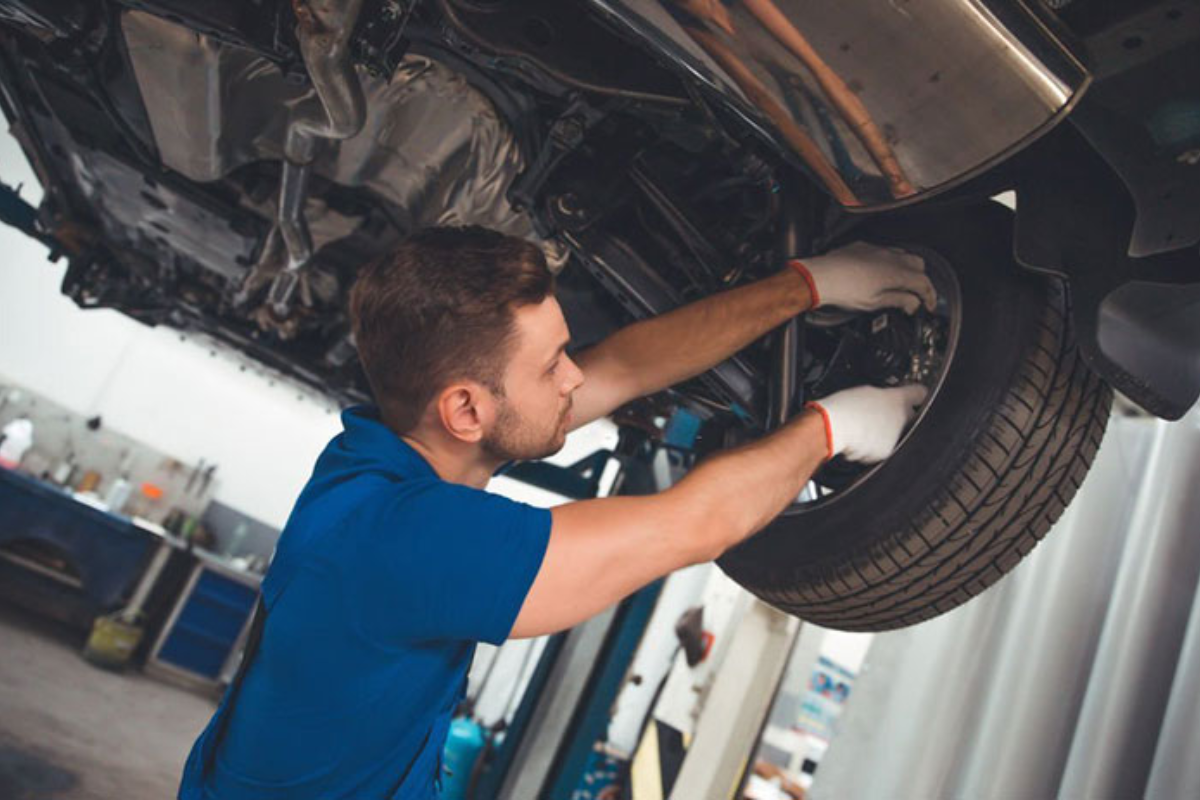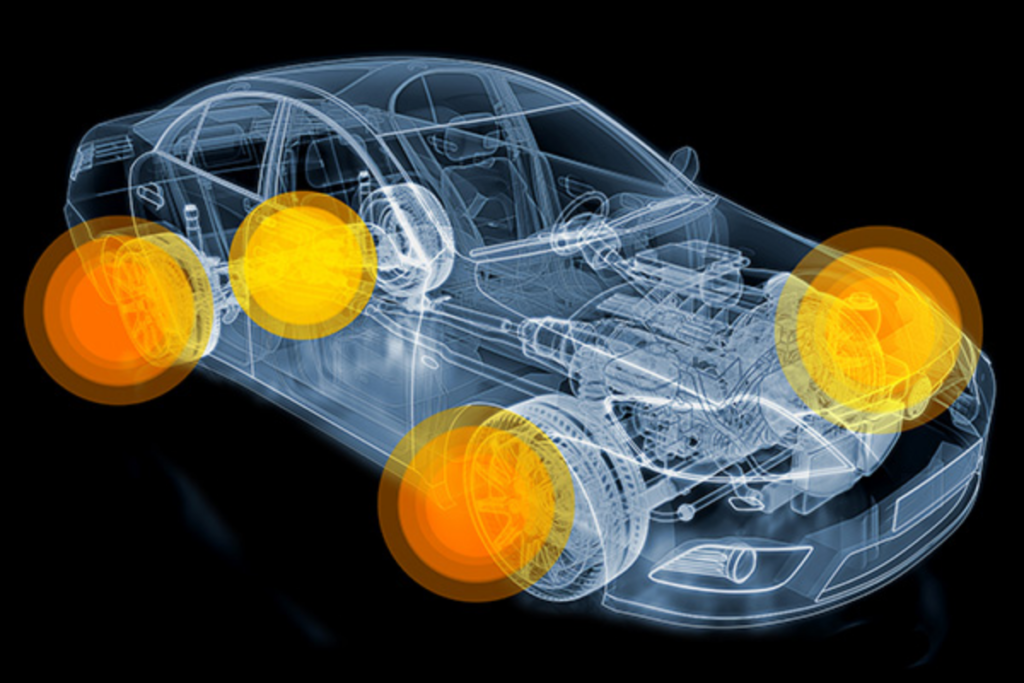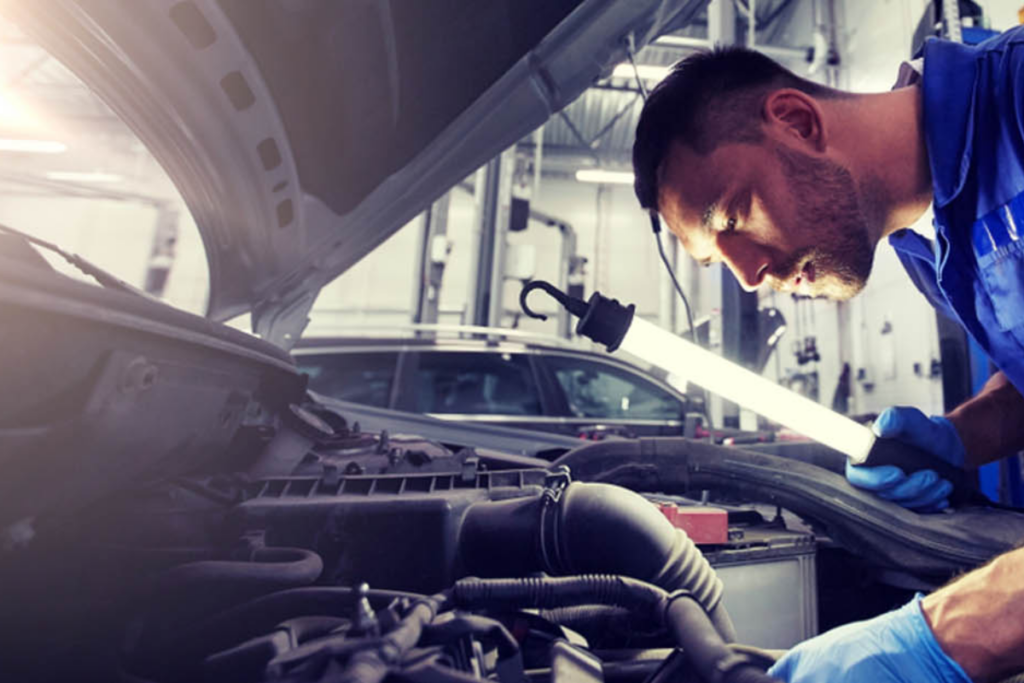📖 Table of Content:
A squeaking noise while driving can be more than just an annoyance—it might be a sign of an underlying issue with your vehicle. Ignoring these noises can lead to more significant problems and potentially costly repairs. Understanding the causes and knowing how to address them is crucial for maintaining your car’s performance and safety. In this article, we will explore the common reasons behind squeaking noises when driving without applying the brakes, how to diagnose the issue, and preventive measures you can take.
Table of Contents
Common Causes of Squeaking Noises While Driving
Suspension Issues
Bushings: Bushings are rubber components that cushion the suspension parts. Over time, they can wear out or become damaged, leading to squeaking noises. Symptoms of worn bushings include a squeaky sound when driving over bumps or uneven surfaces.
Ball Joints: Ball joints connect the suspension to the wheels, allowing for smooth movement. When they fail, they can produce a squeaking or creaking noise, especially when turning the wheel or driving over rough terrain.
Struts and Shocks: These components absorb shocks from the road. Worn-out struts or shocks can cause squeaking noises, particularly when driving over bumps or uneven surfaces.
Wheel Bearings
Dry Bearings: Wheel bearings need proper lubrication to function smoothly. Dry bearings can cause a high-pitched squeal while driving. Regular maintenance and lubrication are essential to prevent this issue.
Worn Bearings: Worn or damaged wheel bearings can produce a grinding or squeaking noise. Indicators of bearing wear include noise that gets louder with speed and vibration in the steering wheel.
Belts
Serpentine Belt: The serpentine belt drives multiple peripheral devices in your car. Causes of wear include age, tension issues, and misalignment. Inspect the belt regularly for cracks or fraying.
Fan Belt: The fan belt, like the serpentine belt, can wear out over time. Preventing squeaks involves regular inspection and maintenance, ensuring proper tension and alignment.
Tires
Improper Inflation: Tires that are not inflated to the correct pressure can cause squeaking noises. Under-inflated or over-inflated tires affect vehicle performance and noise levels.
Uneven Wear: Tires with uneven wear patterns can create a squeaking noise. Regularly check your tires for uneven wear and rotate them as needed to ensure even tread wear.
Steering System
Power Steering Pump: Issues with the power steering pump, such as low fluid levels or worn-out components, can produce a squeaking noise when turning the steering wheel. Regularly check the power steering fluid and inspect the pump for any issues.
Steering Rack: Problems in the steering rack, such as wear or damage, can cause squeaking noises. Symptoms include noise when turning the wheel and a feeling of looseness or play in the steering.
How to Diagnose Squeaking Noises
Visual Inspection
What to Look For: Key Areas to Inspect Visually
- Suspension Components: Check for worn or damaged bushings, ball joints, and struts.
- Belts: Inspect serpentine and fan belts for wear or looseness.
- Tires: Look for uneven wear, damage, or improper inflation.
- Wheel Bearings: Ensure bearings are lubricated and not excessively worn.
Test Drive
Identifying the Source: How to Use Test Drives for Diagnosis
- Listen Carefully: Pay attention to when and where the noise occurs (speed, terrain, etc.).
- Note Patterns: Determine if the noise changes with acceleration, deceleration, or steering.
- Reproduce the Noise: Try to replicate the noise in a controlled environment for better identification.
Professional Diagnosis
When to Seek Help: Signs That You Need a Mechanic
- Persistent Noise: If the noise persists despite your checks and minor fixes.
- Complex Symptoms: If the noise is accompanied by other issues like vibrations or steering problems.
- Safety Concerns: If you’re unsure about the safety of continuing to drive with the noise.
Preventive Maintenance Tips
Regular maintenance is key to avoiding squeaking noises while driving. Here are some essential tips:
Regular Inspections
Frequency: To keep your vehicle in top condition, perform a thorough inspection of key components every 6,000 miles or every six months, whichever comes first.
Proper Lubrication
Bearings and Joints: Ensure that bearings and joints are properly lubricated during each oil change. Using high-quality grease can significantly extend their lifespan and prevent squeaking.
Timely Replacements
Belts and Bushings: Replace belts every 60,000 to 100,000 miles or as recommended by your vehicle manufacturer. Bushings should be inspected regularly and replaced at the first sign of wear to avoid noise and potential damage.
FAQs About Squeaking Noise While Driving But Not Brakes Applied
Can I drive with a squeaking noise? Driving with a squeaking noise is not advisable as it can indicate an underlying issue that may worsen over time. It’s best to diagnose and fix the problem promptly to avoid further damage and ensure safety.
How much does it cost to fix a squeaking noise? The cost to fix a squeaking noise varies depending on the cause. Simple fixes like lubricating a dry component may cost little, while more significant repairs like replacing worn suspension parts or belts can be more expensive.
What happens if I ignore the squeaking noise? Ignoring a squeaking noise can lead to more severe issues, including increased wear on vehicle components, potential safety hazards, and higher repair costs down the line.
Why does my car squeak when I drive but not when I brake? A car that squeaks while driving but not when braking may have issues with the suspension, wheel bearings, or belts. The noise could be due to worn or dry components that only manifest during driving.
Why does my car make a squeaking sound when I drive? Squeaking sounds when driving can be caused by worn suspension parts, dry wheel bearings, improperly inflated tires, or loose belts. Diagnosing the specific cause requires a thorough inspection.
Do brakes squeak even when not braking? Brakes typically squeak when applied, but if they squeak when not braking, it could indicate a problem with the brake pads or rotors. However, if the squeaking persists when not braking, the issue might lie elsewhere in the vehicle.
Squeaking noise while driving stops when braking? If a squeaking noise stops when braking, it could indicate issues with the suspension or wheel bearings. The braking action may temporarily reduce the load or movement causing the noise.
Squeaking noise while driving slow? A squeaking noise while driving slowly might point to suspension issues, wheel bearings, or tire problems. Lower speeds can make these noises more noticeable.
Squeaking noise while driving but not brakes applied reddit? Discussions on forums like Reddit often highlight common causes such as suspension wear, dry bearings, and belt issues. Users share their experiences and solutions, offering valuable insights.
Intermittent squeaking while driving? Intermittent squeaking can be challenging to diagnose but often points to issues like loose components, varying load conditions, or specific movements that cause temporary friction.
Squeaking noise while driving but not brakes applied new brakes? If new brakes are installed but the squeaking persists, it might be due to unrelated issues such as suspension wear, wheel bearings, or improperly installed brake components.
Squeaking noise from front wheel when driving? A squeaking noise from the front wheel can indicate problems with wheel bearings, suspension components, or brakes. Inspecting these areas can help identify the cause.
Squeaking noise when driving from back? Squeaking from the back can be due to rear suspension issues, rear wheel bearings, or brake problems. It’s essential to check these components to determine the source.
Squeaking noise when driving from wheel?
Squeaking from a wheel often points to bearing issues, misalignment, or brake problems. Addressing these issues promptly can prevent further damage.
Conclusion
Understanding the causes of a squeaking noise while driving can help you address potential issues before they become serious problems. Key points include checking the suspension, wheel bearings, belts, tires, and steering system for any signs of wear or damage. Regular maintenance and prompt attention to unusual noises are crucial for vehicle safety and longevity.
Ignoring these noises can lead to more extensive damage and higher repair costs. If you’re unsure about the source of the squeak, it’s best to consult a professional mechanic for a thorough inspection. Taking proactive steps will ensure your car remains in good condition and safe to drive.




